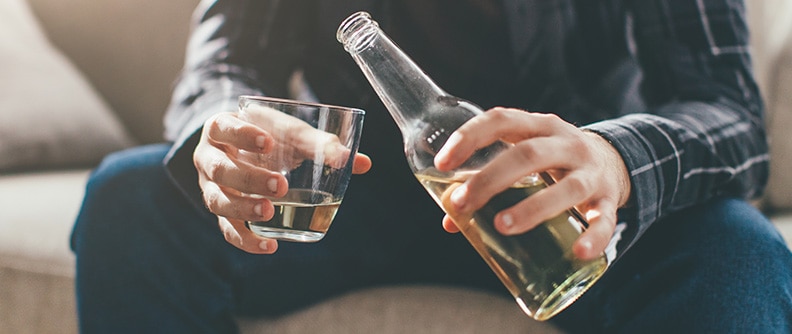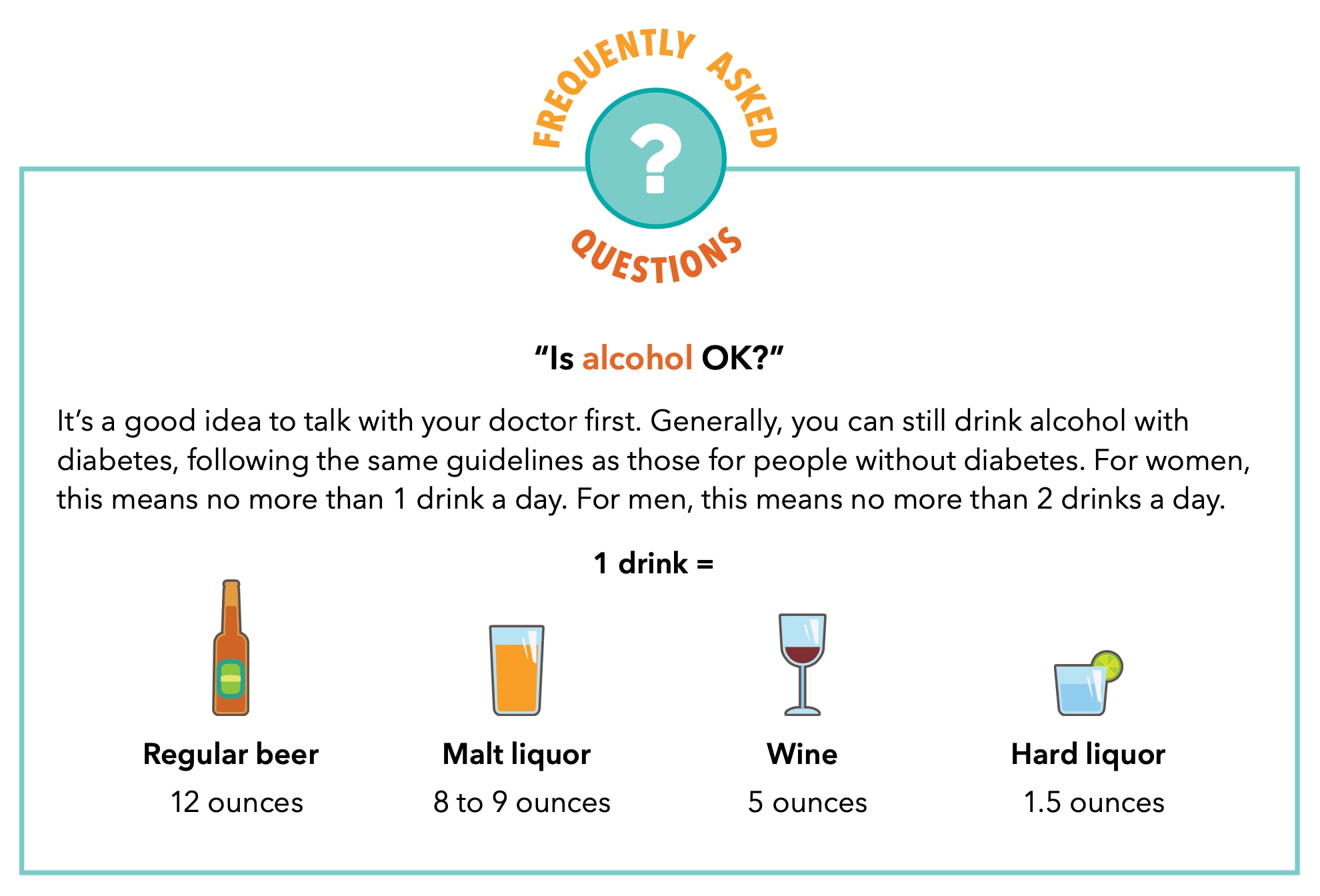The liver works to keep blood sugar at a normal level. In people with diabetes, medications help it do that job. The liver also works to remove alcohol from the blood.
Many people with diabetes can still drink alcohol in moderation, following the same guidelines as those for people without diabetes.
Alcohol may not mix well with insulin or diabetes pills. Alcohol can make other conditions worse and can lead to serious problems.
It’s always best to talk with your doctor about your medical history, your progress in managing your diabetes, medications, and use of alcohol. That way you can know what to expect and plan ahead.
Drinking alcohol in moderation
The meaning of “a drink” changes for different kinds of alcohol:
- Regular beer = 12 ounces
- Malt liquor = 8 to 9 ounces
- Wine = 5 ounces
- Hard liquor = 1.5 ounces
Based on those amounts, the guidelines for drinking alcohol “in moderation” (for people with or without diabetes) are:
- Men: No more than 2 drinks a day
- Women: No more than 1 drink a day
With diabetes, you should try to minimize alcohol intake as much as possible. Talk with your doctor and care team to decide what’s best for your own safety and health should you choose to drink.
Know what you need to look out for
It may be important to limit or not drink alcohol if:
- Your diabetes is not well controlled.
- Your triglycerides (blood fats) are high
- You have other health conditions, such as nerve damage.
- You take medications that interact with alcohol.
- You’ve had problems from drinking alcohol in the past.
Before you take that first sip, ask yourself these questions:
- Is my diabetes under control (with my A1C less than the goal I set with my doctor)?
- Have I talked with my doctor to know whether I have other health concerns that may become worse if I drink alcohol?
- Am I taking insulin or diabetes pills like metformin, glipizide, or glyburide that could build up lactic acid or cause low blood sugar if I drink?
Safety guidelines
Based on your medical history, medications, and progress in managing your diabetes, you and your doctor may agree that you can drink alcohol in moderation.
Here are some guidelines to help you be safe and healthy if you do decide to drink:
- Check your blood sugar before and after you drink. This will help you learn what alcohol does to your blood sugar and how it mixes with your diabetes medication.
- Consider your calories and carbs. Alcohol is high in calories and most mixers are high in calories and sugar (carbs).
- Choose sugar-free and calorie-free mixers. Stay away from fruit juices, regular soda, and other mixers.
- Remember that your choices can help or hurt your efforts to manage your diabetes. That also applies if one of your goals is to lose weight.
- Always eat a meal or snack when you drink alcohol. When you take insulin or diabetes medication, alcohol can make your blood sugar drop too low (hypoglycemia). Having some food in your stomach will help keep your blood sugar up in a healthy range.
- Be smart. Alcohol can cause you to forget about your health and safety. It can also lead you to take risks you normally wouldn’t. Keep these in mind:
- Sip your drink slowly so you can stay aware of how the alcohol is making you feel as you drink.
- Stop and solve the problem if you begin to feel unwell. You may just need a simple answer, such as food, water, or medication.
- Wear medical identification just in case you can’t call for help when you need to.
- Don’t drink and drive. It goes without saying, but we’re saying it anyway!

